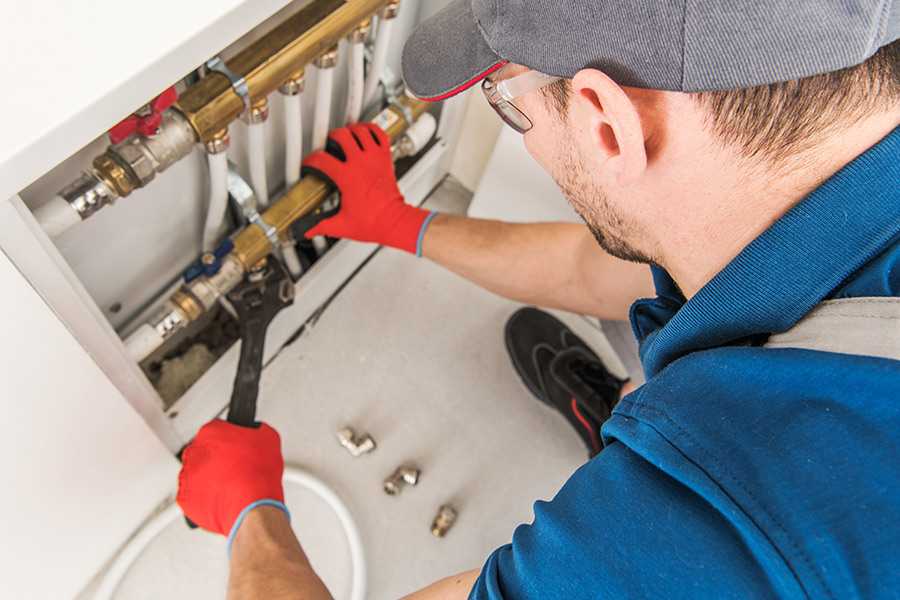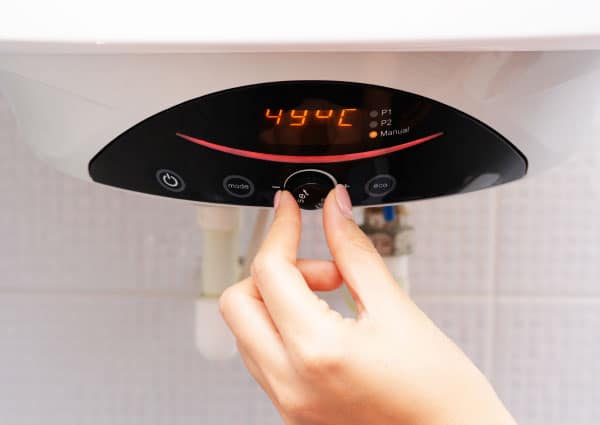We've unearthed the article involving The Importance of Water Heater Maintenance below on the internet and decided it made perfect sense to relate it with you here.

A hot water heater is among one of the most crucial standard devices that can be discovered in a house. With hot water heater, you don't require to go through the stress and anxiety of heating water by hand whenever there is a requirement to wash, wash, or the dishes. Nonetheless, there is constantly a possibility that your hot water heater would act up just like a lot of mechanical devices.
It is essential to keep in mind any little malfunction as well as tackle it promptly before things leave hand. Most times, your water heater begins to malfunction when there is a build-up of debris as a result of continual use. As a preventative measure, periodic flushing of your water heater is suggested to stop debris build-up and protect against useful failing.
Usual hot water heater emergencies and exactly how to take care of them
Leaky hot water heater container.
In this situation, you should transform off your water heating system, permit it to cool down, as well as very carefully look for the resource of the issue. At times, all you require to do is to tighten a few screws or pipeline links in situations of minor leaks. If this does not function and also the leak lingers, you could require to employ the solutions of a professional for a proper substitute.
Varying water temperature.
Your hot water heater might start producing water of different temperatures typically ice cold or hot warm. In this scenario, the first thing you do is to ensure that the temperature is set to the desired degree. If after doing this, the water temperature level keeps transforming during showers or various other tasks, you might have a damaged thermostat. There may be a need to replace either the home heating or the thermostat device of your hot water heater.
Insufficient warm water
It might be that the water heater can't support the warm water demand for your house. You might update your water heating system to one with a larger ability.
Stained or odiferous water
When this occurs, you need to know if the issue is from the water or the storage tank resource. If there is no amusing scent when you run cold water, after that you are particular that it is your water heater that is faulty. The stinky water can be caused by rust or the accumulation of bacteria or sediments in the hot water heater storage tank. When you discover this, you can try flushing out your tank or replacing the anode if the problem persists. The feature of the anode is to clean microorganisms from your storage tank. Considering that the anode rod substitute needs a detailed understanding of your water heater, you will need the aid of a specialist.
Conclusion
Some property owners ignore little caution as well as minor faults in their hot water heater unit. This only brings about additional damages as well as a possible total failure of your appliance. You need to handle your hot water heater mistakes as soon as they come near avoid even more expenditures and unneeded emergency troubles.
With water heating units, you don't require to go with the stress and anxiety of home heating water by hand every time there is a demand to take a bathroom, do the laundry, or the meals. Your water heating system could start producing water of various temperature levels usually ice scalding or cold warm. It might be that the water heater can not support the hot water need for your house. If there is no amusing scent when you run chilly water, after that you are particular that it is your water heating unit that is damaged. The odiferous water can be triggered by corrosion or the accumulation of germs or debris in the water heater container.
What’s Wrong With My Water Heater?
Not Enough Hot Water
You probably encounter this problem in the shower or while washing dishes. As you run your water, you’ll notice it starting to cool down. Turning up the hot faucet may not work, or it may only heat the water for a short period. Your hot water probably comes back and works normally one or two hours after you use it up.
If you’ve never had enough hot water, your heater may be too small for your home. If you haven’t had a problem until recently, there’s probably something’s wrong with your heater’s thermostat. Try adjusting it to see if you can feel a difference. Even if the thermostat’s working, the heating element itself could have burnt out. It’s also possible that a clog has restricted water flow into or out of the heater. Luckily, none of these problems are hard to fix, as long as you call them in early.
Water is Too Hot
Unregulated water heaters can make water dangerously hot. You probably have this problem if you’ve been scalded by your hot water. It’s also a likely culprit if you have trouble getting your faucets to produce a comfortable temperature. This problem is easy to fix, but it can also be a serious health hazard if you don’t address it. If you think your water is too hot, don’t doubt yourself; look into it!
Start by finding your heater’s thermostat and mark its position with a pen. Turn the thermostat to a cooler setting. Wait a couple hours to see if the problem is solved. If it isn’t, listen for boiling in the tank and look for water that comes out of the faucet steaming. In those cases, your temperature-pressure relief valve may be malfunctioning. This is a serious problem that can be dangerous, so you should have it looked at right away.
Discolored or Smelly Water
If all your water looks rusty or smells weird, there’s probably a problem with your pipes. If only your hot water looks weird, however, your water heater is probably at fault. Hot water discoloration comes in several varieties. It could look orange or brown-ish, taste rusty, or feel grainy. It could also look yellow or green-ish and taste gross or feel slimy. Either way, it’s a sign that there’s something wrong with your water heater’s tank.
Usually, hot water discoloration means sediment has built up in your tank. Sediment is made up of hardened minerals that accumulate on the inside of the water heater’s walls. When enough sediment builds up, it causes all kinds of problems–including your discolored water. Try flushing your water heater tank to clean out built up sediment. If the water still tastes rusty, your tank’s rust-preventing anode rod may have worn out. A pro can replace an anode rod easily, but without one, your tank could rust beyond repair relatively quickly.
Leaking
Water heaters can leak from several different places, and each leak means something different. If the leak is coming from a pipe above the heater, it’s possible the tank itself hasn’t been compromised. The cold inlet, hot outlet, and T&P pipes could all leak from above. Try tightening the problematic valve. If that doesn’t work, then the valve or pipe will have to be replaced.
If the leak is coming from the bottom of the tank, it’s important to determine exactly where it is. The leak could be coming out of the drain valve or your T&P valve below the tank. You can replace those valves and preserve the tank itself. If you notice the water tank itself leaking, however, that probably means it’s corroded beyond the point-of-no-return. Leaking water heaters are a big deal, so you should get yours replaced ASAP.
https://www.punctualplumberdallas.com/blog/whats-wrong-water-heater/

We were introduced to that article about Is Your Water Heater Leaking? from a friend on a different web address. If you enjoyed reading our article please do not forget to share it. Thanks so much for your time invested reading it.
Always here, call!
Comments on “Handling the Typical Water Heater Crisis Scenarios”